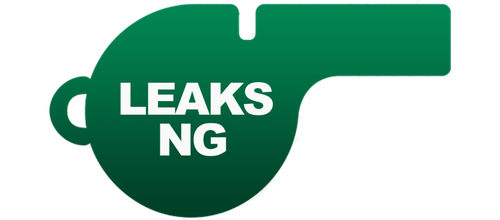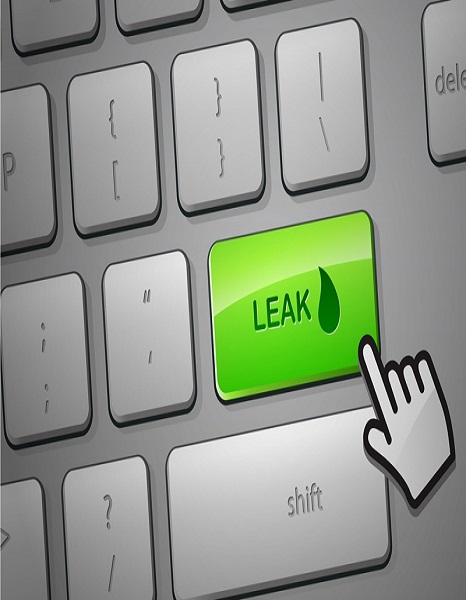
Reveal the truth
An independent whistleblowing platform for revealing information in the public interest in Nigeria
Leaks.ng allows you to share confidential information of public interest with the Nigerian media. The system has been designed to help you share these materials while protecting your identity, making it difficult for you to be identified as the source of the information.
Leaks.ng is run by a coalition of Nigerian news organisations and civil society organisations that are committed to speaking truth to power. You can send us files and select which of our partner organizations you would like to share the information with. This site provides details on how you can submit your information and what you can do to secure yourself in the process.
If you have information about issues which should be investigated, share them with with us using this site. Consider that concrete information and evidence, such as source files, gives a journalist more to work with and increases the likelihood that your issue gets taken up.

Leaks.ng is a tool that allows people to send information of public interest to media outlets and civil society organizations through secure technologies that protect the identity of the source. Using transparency and civil participation, it aims to build a fairer and more democratic society.
The information received through Leaks.ng will be verified, analyzed and published by the partners of our alliance, made up of civil organizations and media outlets. The main goal is that the impact of the information revealed is amplified, on a social and legal level.
Security is an integral part of our project. Leaks.ng uses advanced digital security technologies designed exclusively for whistleblowing. It is essential that all instructions on this site are followed closely so that the identity of the whistleblower is protected. See 'Secure yourself' for more details. If done correctly, even ourselves will not know the origin of the information.
The identity of our sources is protected with technological solutions: in Nigeria, the Constitution recognizes freedom of expression, of information and the right to secrecy on behalf of journalists. All media outlets have the obligation and the right to protect the identity of their sources, even in a legal procedure.
This website uses state of the art security software to anonymize your internet connection as you submit files or correspond with reporters. This way your identity is protected both from the reporters who receive the files and from others who might be monitoring or intercepting your communications.
Sharing confidential information is never without risk. Leaks.ng will try, as much as possible, to protect your communication and to provide information about the risks. The system makes finding the source of a leak difficult. Our receivers are journalists that have been trained in the use of state-of-the-art security tools and procedures. That said, while trying to mitigate the risks as much as possible, the whistleblower and journalists are responsible for their own actions.
Leaks.ng receivers must meet several criteria: excellence in investigative journalism, integrity in content and investigative processes, geographic relevance. Members of the coalition were initially approached with these principles in mind. Others that intend to join the coalition will be vetted by partners in the coalition.
Sharing confidential information is not free of risk. There are are security risks you need to be aware of before, during and after your submit sensitive information. These risks threaten your anonymity. You can however, take precautionary measures to protect yourself.
Ask yourself some questions before you share information.
Things you can do – or should avoid – in order to protect yourself before and after you share information.
When you use a computer, mobile phone or the internet, or any means of communication, your actions will leave traces. These traces contain information about your identity, your devices, your location, the websites you visit, copies of all files you share, of messages you exchange, and so forth.
Take technical precautions that minimize the traces you leave and the risks you run.
By following the procedures listed above and taking into consideration the social risk factors, you will greatly increase your chances of remaining anonymous. This does not mean that your anonymity will be 100% protected and ensured. The website Security in-a-Box can teach you much more about digital security best practices.
The Whistleblower Policy is not a Law of the National Assembly but it was approved by the Federal Executive Council in December 2016. The policy authorises government to recover stolen or concealed assets through information provided by a whistleblower, then he/she may be entitled to between 2.5% - 5.0% of amount recovered.
The policy does not provide ANY immunity from civil or criminal prosecution. This implies that if during the investigation some of the evidence links a whistleblower to partaking in the act of corruption or a related incident, the whistleblower would not be immune from criminal prosecution. He/she could technically be charged for a crime that they helped blow the whistle on.
The Nigerian Senate has however passed the ‘Whistleblower protection bill’ after its third reading at plenary. The aim of the bill is to ensure the protection of whistleblowers with reliable information on the war against corruption.